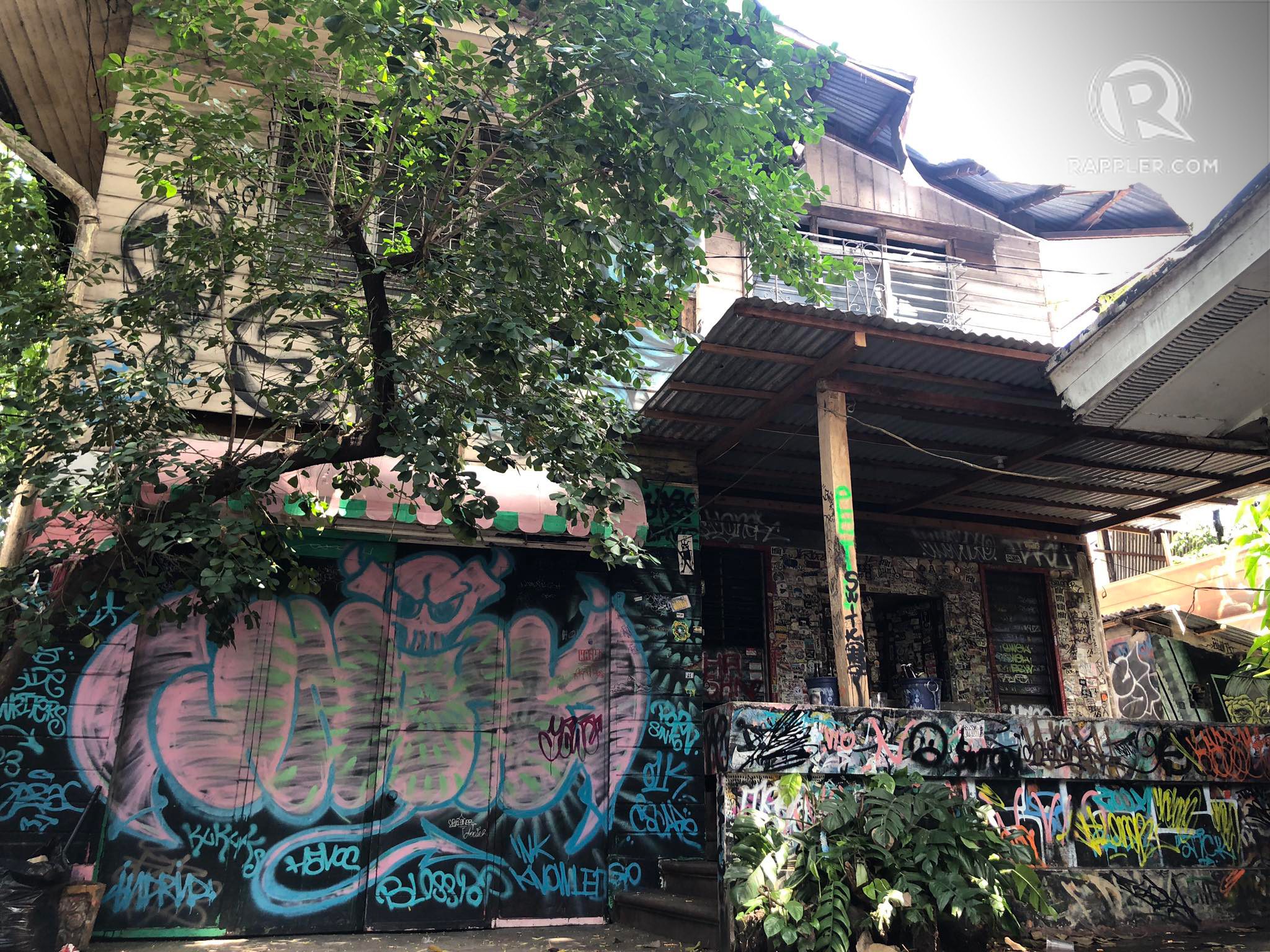SUMMARY
This is AI generated summarization, which may have errors. For context, always refer to the full article.

CEBU CITY, Philippines – When one made a visit to Kukuk’s Nest, it would be impossible to not see walls filled with graffiti art, shelves carrying books that had diverse, sensual themes, paintings scattered around, and ashtrays containing small hills of cigarette butts.
For those unfamiliar with the place, it would look like a scene from a grungy punk rock indie film or a haunted house – cobwebs and all.
To its loyal patrons, Kukuk’s Nest was home as it should be.
Now, after being a haven for Cebuano creatives, musicians, and travelers for 34 years, Kukuk’s Nest finally closed down on Monday, June 5.
Cebuana artist Maria Victoria “Bambi” Beltran, the owner of the establishment, told Rappler on Tuesday, June 6, that the owner of the lot where the café is located plans to use the space for redevelopment.

In 1989, Raimund Houscht and Beltran established Kukuk’s Nest as a guest house with a 24-hour restaurant and bar along Gorordo Avenue in Cebu City, just outside of the University of the Philippines Cebu. It featured an “East meets West” kind of menu, consisting of special meals that were a mixture of Filipino, German, Thai, Indonesian, French, and other cuisines.
More often than not, locals and tourists came and stayed for the alcohol and social events held at the Turtle’s Nest Book Café and Gallery in Kukuk’s Nest.
“The place became a venue for poetry readings, musicians also, reggae artists like Junior Kilat, and it just developed to be a place where artists can hang out,” Beltran said.

From small exhibits to performance art and even stand-up comedy, Kukuk’s Nest was the place to go to immerse in Cebu’s unique creative community.
Beltran shared how some filmmakers would shoot scenes inside the establishment, recalling moments with artists like Chai Fonacier, who went on to star in the Filipino-Irish psychological thriller Nocebo.
“They would come here and sleep here on the sofa. On Christmas, those who have no family would spend the holiday here,” Beltran added.
When asked if there was any part of Kukuk’s Nest that Beltran held dear, the artist said that it was the people she spent years with under the establishment’s roof.
“I’m happy to see people who were students come here and now, they became famous and successful. I think that’s the best part, that it helped nurture the artists [to] make names for themselves,” Beltran said.
Home is here
As Handuraw, Outpost, and other well-known hangout spots along Gorordo Avenue closed down during the pandemic, Kukuk’s Nest became the “last community space” standing.
“It was an anomaly in an otherwise conservative city, one of the last venues that allowed art for art’s sake. Everyone else made space only for tourist-friendly,” award-winning film director and writer Ara Chawdhury wrote in a Facebook post.
In her younger days, Chawdhury remembered attending screenwriting workshops, auditioning for her first acting role, and even falling in love at Kukuk’s Nest.
Besides the arts, Kukuk’s Nest was also a sanctuary for Cebu’s activists, student leaders, and young lawyers.
“As I was growing up as a young advocate and student leader, Kukuk’s was one of the places that expanded my knowledge about the arts, film, activism, and other topics that could be discussed over drinks,” University of San Carlos law student and National Union of People’s Lawyers member Christian Ilustrisimo said.
One of the most memorable experiences that Ilustrisimo had was being able to attend a small celebration that was held the night after Beltran’s release from police custody on Tuesday, May 27.
“I had a mini-reunion with friends…. It’s always fun to be with them, but I didn’t expect that it would be our last hangout at Kukuk’s,” Ilustrisimo said.
Ilustrisimo, like most patrons, believes that Kukuk’s Nest will go down as one of the most iconic places in Cebu that will be remembered for years to come.
In response to that, Beltran said, “It’s not the end of an era. The people that grew up here can always continue to do what they do best.”
‘Salamat Kukuk’s’

Upon hearing that the beloved establishment was closing, many netizens were quick to share their grief and memories of the place on social media.
“I genuinely feel sad upon hearing the somber news that Kukuk’s Nest finally tapped out and is now closing up shop,” tattoo artist Fel Kevin Alingasa wrote in a Facebook post.
Like many artists before him, Alingasa found his community in Kukuk’s Nest and met people who would influence him to pursue a career in tattooing.
“Had it not been for Kukuk’s I probably wouldn’t have even touched a tattoo machine,” Alingasa said.
Cebuano artist Bastinuod posted an art piece on his official Facebook page as a way of paying homage to the beloved establishment: “Salamat Kukuks.”
– Rappler.com
Add a comment
How does this make you feel?



















There are no comments yet. Add your comment to start the conversation.